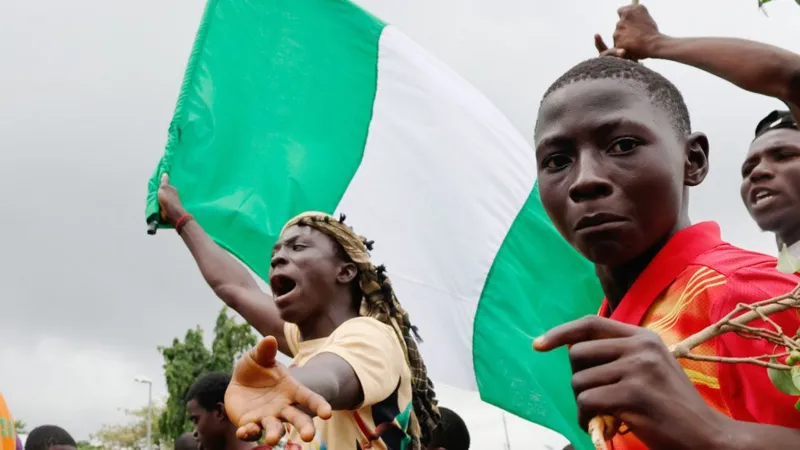Nigerian President Bola Tinubu has called for an end to protests after “bloodshed” during three days of demonstrations over rising living costs.
At least seven people have died, and over 700 have been arrested since Thursday, when Nigerians began a series of ten planned “days of rage” protests.
In a televised address, President Tinubu acknowledged the public’s “pain and frustration” but defended his economic reforms, which protesters blame for their hardships.
These reforms include removing a petrol subsidy and ending the peg of the local currency to the dollar, causing prices to skyrocket since he took office in May 2023.
The president noted that the protests had been hijacked by looters in some areas and urged for the unrest to stop to allow for dialogue. He did not indicate any plans to reverse his policies.
The demonstrations were organized on social media with the hashtag #EndBadGovernance, inspired by recent successful protests in Kenya against tax increases.
President Tinubu expressed sorrow over the loss of lives and the destruction of public facilities, especially in four northern states under 24-hour curfews due to accusations of violence by “hoodlums.” He emphasized the need for public order and stated that the government would not allow a few people with a political agenda to disrupt the nation.
Amnesty International reported a death toll of 13 and called for an independent investigation into the killings in Kano. Some protesters in Kano have ignored lockdown orders, waved Russian flags, and called for help from Russia’s President Vladimir Putin. This sentiment has spread on WhatsApp, with many changing their profile photos to the Russian flag.
In the capital, Abuja, security forces have used tear gas to stop protesters for three days. While businesses have started to reopen in Lagos and parts of Abuja, flights to places like Kano have been canceled indefinitely.
A youth leader in Kaduna announced plans to continue protests, urging the president to meet with them publicly in Abuja’s Eagle Square.
Protesters remain unhappy about threats from the defense chief that the military might intervene if violence continues.
Nigerian security analyst Bulama Bukarti warned that the use of Russian flags could be dangerous, urging protesters not to be manipulated by those with ulterior motives.
These events highlight the tension and frustration in Nigeria, where rising living costs and economic reforms have led to widespread discontent.
The president’s appeal for peace may not be enough to quell the anger of young Nigerians, who demand significant changes.
(Credit: BBC)
https://www.bbc.com/news/articles/crgeexzdl4wo

